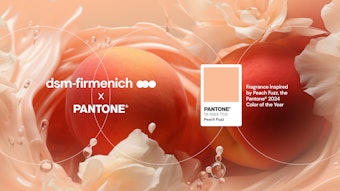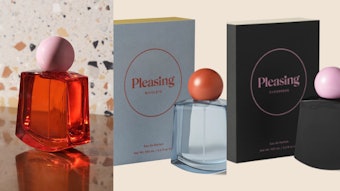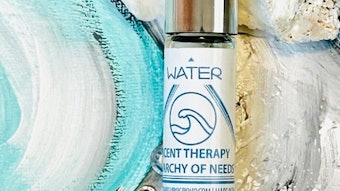
Clean beauty. Non-toxic ingredients. Fragrance-free. Natural. Organic. Free-from. These marketing terms and claims have become the standard for beauty and fragrance product development for the better part of the last seven yearsa. Taking a closer look at the ways these claims have affected fragrance inclusion in personal care products and fragrance development in general, we have to ask, “What have we done with our sense of smell?”
Fragrance in the Realm of ‘Healthy’
Free-from claims were the first to surface as a way of providing more product options to consumers who didn’t want fragrance in their product, or who were sensitive to certain ingredients. This free-from claim became largely married to the perceived natural/organic ingredient brand positioning that came later (F-1).
Lifestyles subsequently became more consciously healthy, with organically grown produce leading the way. Gluten-free and vegan claims gained more market share, and the beauty industry followed suit by introducing organic ingredients into formulas. The goal was (and is) to be healthy and safe in a world filled with fear, anxiety, worry and distrust of conventional industry.
As products shifted into the realm of “healthy,” fragrance became a favored culprit. Now, as an industry, we have to ask ourselves: Have we really thought about the long-term consequences of pressing fragrance-free claims and instead boxed ourselves into a corner? Furthermore, has the fallout of eliminating fragrance or scent from beauty products been adequately explored? And, finally, have we unknowingly neglected portions of people’s minds by ignoring one of our five senses and eliminating scent from products? Have we unknowingly stymied consumers from feeling joy, contentment, reminiscence and love?
Humans are born with the sense of smell, which can transport us instantly down memory lane and is a crucial part of our day-to-day conscious and subconscious reality. Would someone purposely disengage the eyes when designing a product? Most likely not. So then why have we been so willing to disengage the nose?
According to Miranda Gordon, VP of fine fragrance, Mane, “Blaming fragrance is misguided in two ways. First, what we’re trying to be (healthy and safe) isn’t necessarily threatened or even affected by fragrance. Second, eliminating fragrance comes at a real cost to our experience. Fragrance supports benefit claims such as moisturizing, toning, energizing, soothing and it helps establish brand identity. Every woman on earth can identify her favorite lipstick from smell alone.”
We Were Designed to Smell
Why is our sense of smell so powerful? It’s all about our limbic system.
The limbic system comprises a set of structures within the brain that are regarded by scientists as playing a major role in controlling mood, memory, behavior and emotion. It is often regarded as being the original, or primitive, part of the brain, because these same structures were present within the brains of the very first mammals.
Knowing this helps us to understand why smell plays such an important role in memory, mood and emotion. Losing or not having a sense of smell can also affect our level of engagement in relationships, possibly leading to depression. Anosmia sufferers often talk of feeling isolated and cut-off from the world around them and experiencing a “blunting” of the emotionsb.
Does this mean that by removing scent and fragrance we are removing potential feelings of happiness, comfort, love and sweet memories of social connection from the consumer experience? Most likely, yes.
Even if a product does not contain a fragrance, oil or infusion of some sort, it still has a scent. That scent can be a base formula, a raw material or an interaction between two materials when blended. Nothing is truly scent-free.
Clean and Sustainable in the World of Fragrance
If you are a proponent of non-fragranced beauty products you may be saying, “Wait, I’m allergic to fragrance. That’s why I don’t want it in my products, and especially not in my facial products.” This is an extremely valid point. Some people may have sensitivities—not necessarily allergies—to fragrance.
The American Academy of Dermatology lists a slew of possible allergens that can cause contact dermatitis with symptoms that include swelling, itchiness and oozing skin reactions. However, all reactions do not point back to fragrance alone. They include everyday objects like the nickel in a doorknob, the clothes that touch our body, our jewelry and even cellphones. What we’ve apparently done in beauty is to cast everything into one pot and point to “fragrance” in beauty products as the culprit behind all our skin issues.
The fragrance industry relies on the Standards put forth by the International Fragrance Association (IFRA), which, according to the group, “ban, limit or set criteria for the use of certain ingredients, based on scientific evidence and consumer insights.”
In 2014, IFRA reacted to the landmark EU Commission Proposals on Fragrance Allergensc. While it supported many of the measures, it also advocated for meaningful labeling, so as not to cause any undo consumer fear or confusion.
IFRA has issued a Transparency List, which is an ordered register of all fragrance ingredients used in consumer goods by the fragrance industry worldwided.
With synthetic materials being questioned by consumers, all-natural ingredient requests are on the rise. This is a double-edged sword, in part due to consumer ignorance. What the general public may not know is that it takes much more energy to create a natural oil than it does to create a perfectly sustainable and safe synthetic material that not only duplicates natural fragrance notes, but also is a more stable and robust component of the final fragrance composition.
Take rose oil as an example. It takes four tons of roses (about 1.6 million rose blossoms) to distill a single kilogram of rose oil. Not only are such practices bad for the environment, costs are higher, too. As product and brand developers, do we really want to continue down this path of pushing “all natural” in the ingredient list, even when it means our products are actually not environmentally sustainable at all?
Because of these conundrums, IFRA takes on the global environmental responsibility of reviewing raw materials sourced from natural and synthetic origin, seeking to deliver high-quality products that respect the environment and communities around the worlde. As an industry, we have to shed the overly simplistic and incorrect mindset of “natural = good, synthetic= bad.” Instead, we must take an “origin-neutral” approach to both environmental protection and safety assessments.
Embracing Fragrance/Scent Once Again
Moving forward, how do we regain an important component in product development? The good news is a shift is already starting to happen. As we seek to create alignment within a somewhat chaotic world, our lifestyles are quickly moving us to ways of calming down, releasing tension and creating order.
For the full article, check out Global Cosmetic Industry's May digital magazine.











